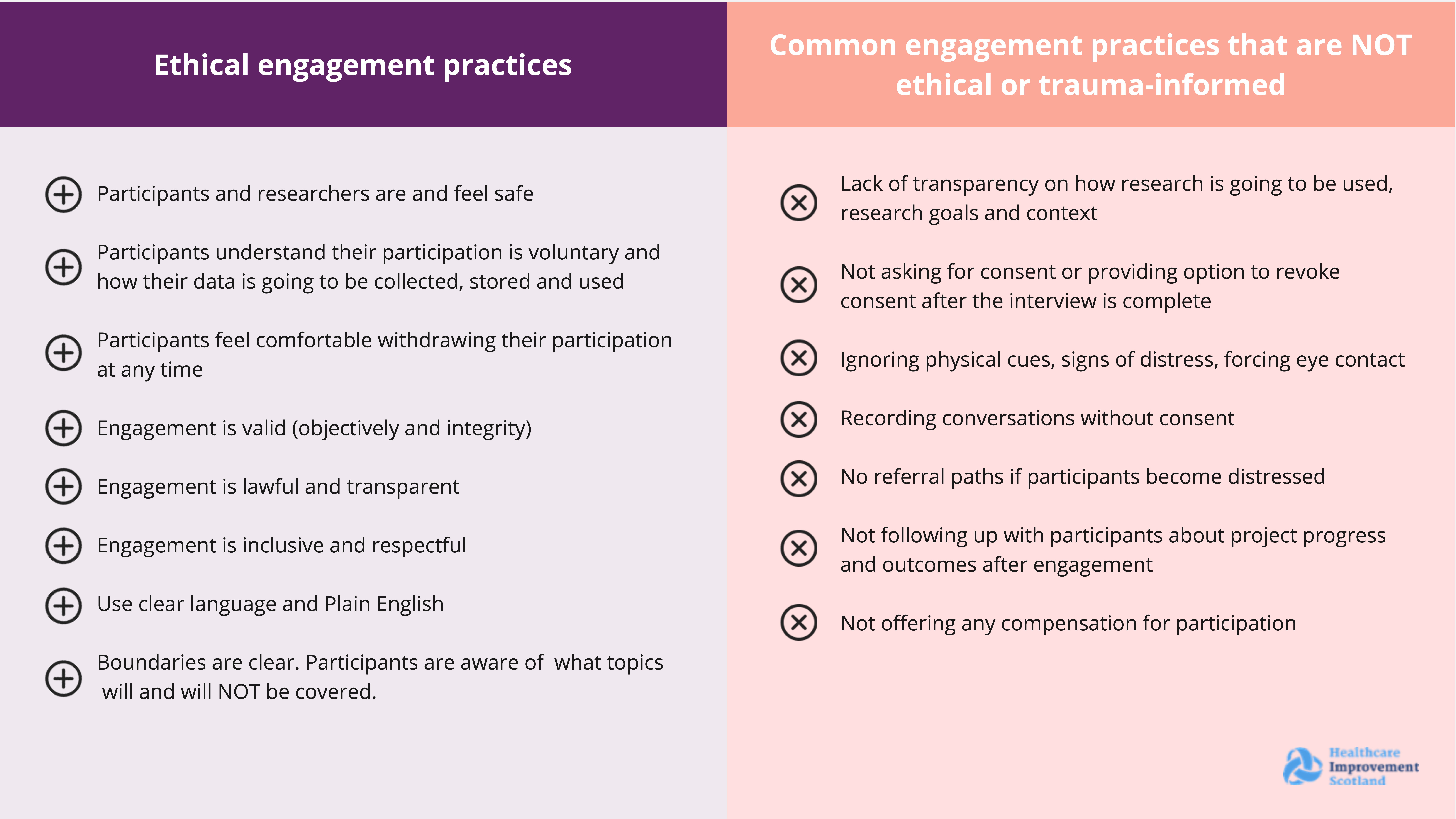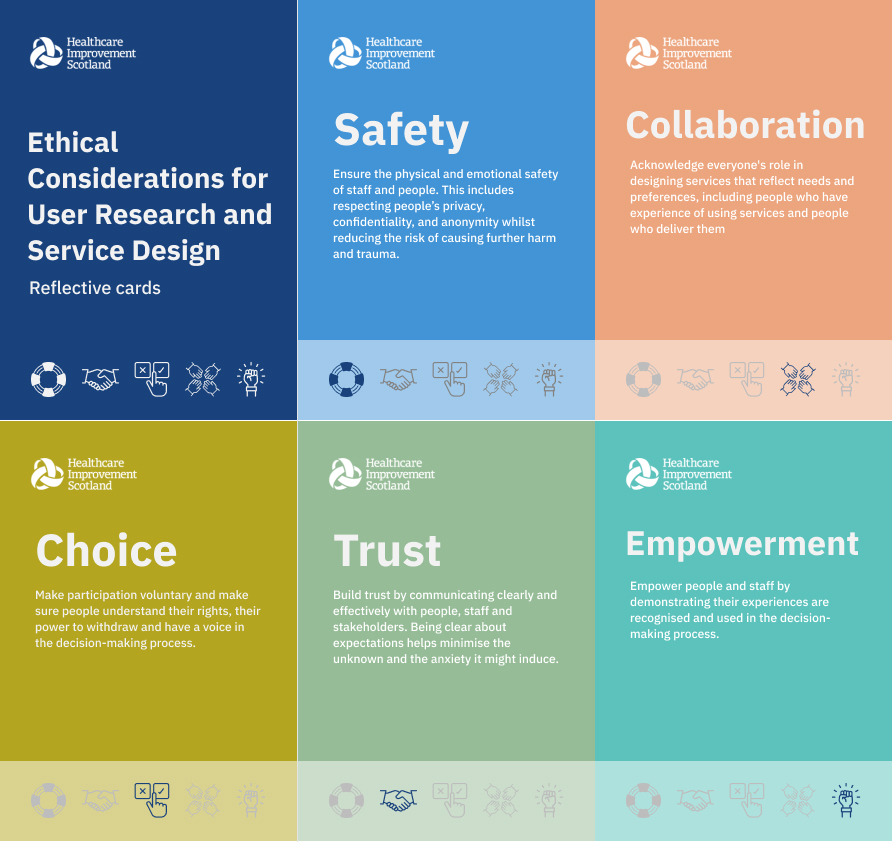The engagement cards assist teams in planning and conducting ethical engagements.
They consider people's diverse needs and experiences.
Different methods of design, research, and engagement can impact people's wellbeing. It can unintentionally lead to participants feeling anxious, unsafe and cause harm or trauma. To conduct engagements ethically, teams must carefully think about ways to reduce anxiety, harm and increase accessibility.
Consider people's needs and experiences
When planning engagements, teams must consider the various needs of participants. For example, participants might have experienced trauma or living with a chronic condition. Recognising this and implementing certain measures can help reduce potential negative effects in participants' wellbeing.
Teams must always prioritise the safety of participants and create the conditions for them to feel able to contribute. Insights and solutions will inevitably be less relevant when teams miss the perspective of people with lived and living experience who don't feel able to share their views and ideas.
For example, consider how the format or setting of the engagement can impact the potential for harm or participant discomfort. Interactions and group dynamics that seem inconsequential can sometimes cause unintended harm or make participants feel unsafe.
Recognising power differentials
Given research and design engagements are about encouraging participants to share their experience and feedback, it is crucial that teams recognise power differentials. Power differentials can prevent people from working together in meaningful ways and lead teams to make incorrect and naive assumptions about participants.
Unpacking privilege helps teams to be more self-aware of their own identity, power and privilege, especially in relation to the people they engage with. By being aware of their own power, teams reduce the risk of having biased information and unverified assumptions and move from hierarchical to more equal relationships.
What are different ways of engaging people?

How to engage people ethically
Before the engagement
An essential time to ensure research planning and recruitment through an ethical lens.
Teams should reflect about their practice and plan engagements that prevent harm and support recovery.
During the engagement
When engaging with participants, teams should create a safe environment. This helps participants feel comfortable sharing their experiences.
So participants feel heard, listen actively and empathise with people's needs and concerns.
After the engagement
After the engagement, teams should thank participants for their time and explain how their expertise will be used.
Teams should take time to reflect and hold team debriefs to discuss personal experiences with the engagement.
Share additional information and resources with participants after the engagement, signposting them to national and local-based information.
Checklist
Ethical engagement DO's and DONT's

Ethical engagement cards
What are the ethical engagement cards?
A reflective design tool that helps teams in planning and conducting ethical engagements considering people's diverse needs and experiences.
How to use the cards
Use these cards to reflect about how to conduct engagement activities in an ethical and meaningful way reducing the risk of causing further harm and trauma to participants.
- Start with selecting a theme
- Use the card to reflect about the different themes and phases of the engagement: before, during and after
Cards themes
The following themes respect the principles of trauma-informed practice (Scottish Government, 2021). Services that are designed taken into account specific experiences and trauma help close the gap between the people who use the service and who provide them.
Safety
Organisations ensure the physical and emotional safety of staff and participants. This includes respecting people's privacy, confidentiality, and anonymity whilst reducing the risk of causing further harm and trauma.
Trust and transparency
Organisations can build trust by communicating clearly and effectively with the people and stakeholders. Being clear about expectations and outcomes helps minimise the “unknown” and the anxiety it might induce participants.
Choice
Making participation voluntary and ensuring participants understand their rights, power to withdraw and have a voice in the decision-making process of the organisation and its services.
Collaboration
The organisation recognises the value of staff and peoples’ experiences in overcoming challenges and improving the system as a whole. This is often operationalised through the formal or informal use of peer support and mutual self-help.
Empowerment
Staff and participants feel empowered by having their experiences recognised and a strong voice in the decision-making process.

References
The Scottish Government (2021). Trauma-Informed Practice: A Toolkit for Scotland. Scotland. https://www.gov.scot/publications/trauma-informed-practice-toolkit-scotland/ (Report No. PPDAS814746 (01/21)
